Downton Abbey's Historical Advisor Says He Was Ruthless on Set
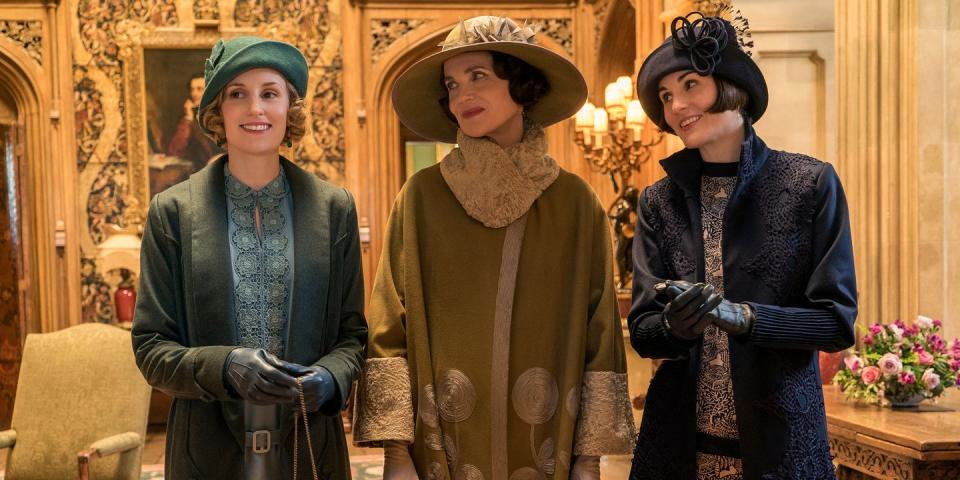
On the set of Downton Abbey, Alastair Bruce is simply known as "the oracle." He served as a historical advisor on all six seasons of the popular Masterpiece PBS series, and he returned for the movie to ensure that no soup spoon was out of place, no body language anachronistic, and that "the film was accurate in every way to do with the theory and manner of the time."
"They come to me with all sorts of questions," he said, explaining the origin of his moniker. "Some of them even come to talk to me about their relationships. I find myself answering everything really, but my real role is to be there and what they know is if they ask me, they'll get an answer instantaneously."
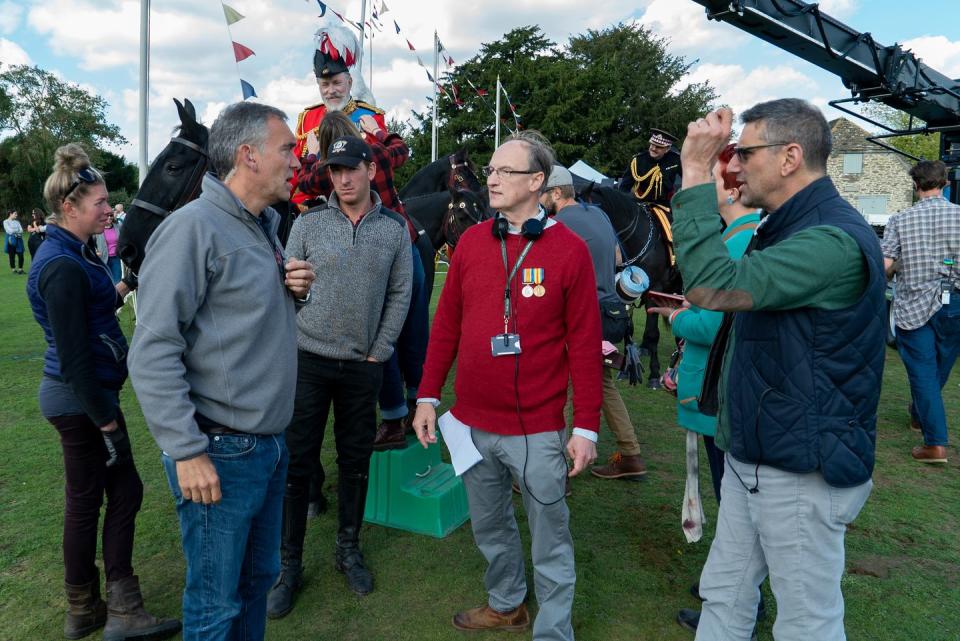
Here, Bruce reveals what he was "ruthless" about on set, shares the proper way to curtsy, and explains how he was particularly well-suited to work on Downton Abbey, in part thanks to his relationship with the modern royal family.
What was it like returning to the Downton universe? Did actors forget certain pieces of protocol over the hiatus?
I take the view everyone forgets everything—I don't trust the fact that they might remember a single thing. My role is to make sure that they completely comprehend the period, and the way I start is I tell them to suspend all their current political thoughts because, in my experience, most actors have quite strong, very admirable liberal views about the world. They just don't figure in the thinking of either an aristocrat of the period we're talking about or indeed any of the staff who work for them, who tended to be extremely conservative.
I remember, for instance, even in my lifetime, there was a wonderful Admiral called Lord Mountbatten who had a great influence on my life. Lord Mountbatten's butler was rung up by the Labour candidate for the local area, and the Labour candidate spoke to the butler and said, "We're here to represent the working classes." And the butler said, "You won't want me. You'll be wanting my boss, Lord Mountbatten. He's much more interested in your sort of views."
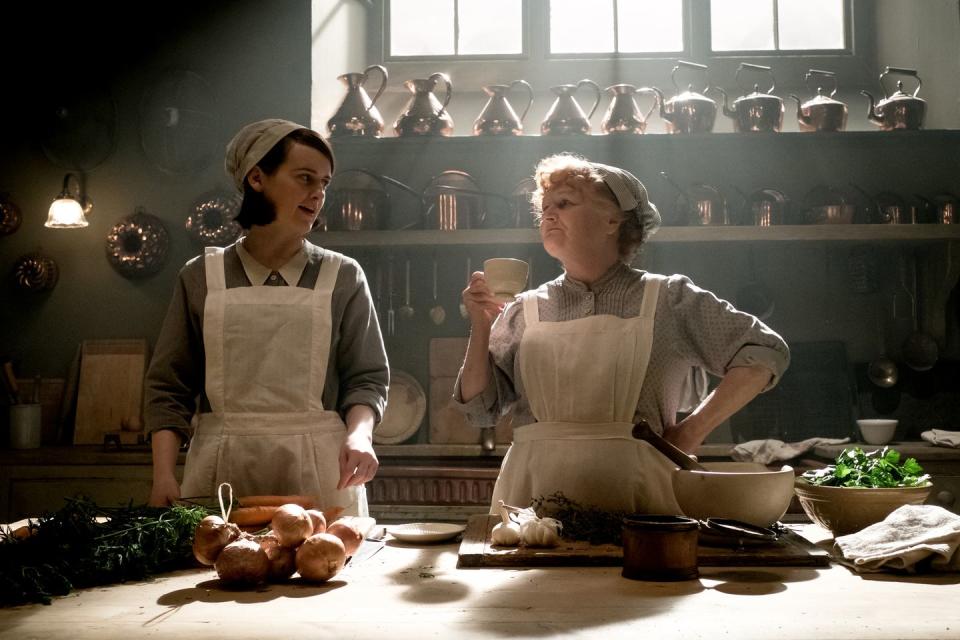
I think that particularly if you worked for these aristocratic families, you didn't have very progressive views, though we do see that in Daisy. Daisy represents the changes that are happening socially and the opportunities that are opening up for working class families at that time.
The film centers around a royal visit and you have personal experiences with members of the royal family. How did those prepare you for working on the movie?
Through the exposure that I've had to members of the modern royal family and from reading about my forebears with their forebears, I know that there is a lot of nonsense in the interpretation of people about how royalty live. They are not demanding of high levels of deference and huge amounts of comfy cushions and everything to be brought to them on a silver tray. They really actually don't find that very comfortable at all. They're basically quite practical people, like most British people tend to be because we have to deal with the weather.
And yet, I think the British system has always provided a manner in which, a sort of code through which position is recognized, and people are thereby given a degree of elevation, and that's not really deference. It's respect in far greater degree.
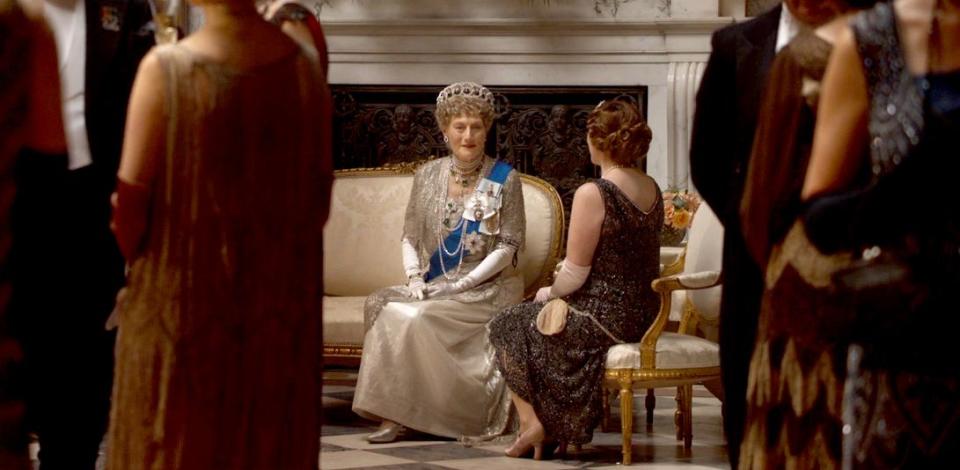
For instance, Geraldine James who plays Queen Mary, every time she walked across the floor, went at great speed. I kept saying, "Geraldine, please will you walk slowly." She said, "Well, we don't have much camera time and I'm very restless." I said, "Well, the thing you need to understand about being Queen is that you're never in a hurry." And I think that slowing her down made her much more regal.
I'm often asked by people who are playing a royal role, "How should I be royal?" And in general, I say, "You can't be royal. Just be yourself, but let me talk to the other cast."
And I tell the other cast, "Every time a member of the royal family comes in, you should stand up and you should bow and you should call them Your Royal Highness and Sir or Ma'am and all that sort of thing." And very quickly, it's the behavior of the people around that actor who make that person look royal.
You work for a member of the royal family today.
I do. I find now, as equerry to Prince Edward, who's the Queen's youngest son, the question I'm most often asked is how should we treat him, how should we speak to him, what should we say? What that tells me is that people get anxious, and I want to turn it into a positive by saying, "to be perfectly honest, Prince Edward doesn't worry about these things. Please enjoy yourself and relax. It's a great honor for him to be here." I think that would have been just the same with King George V and Queen Mary's time.
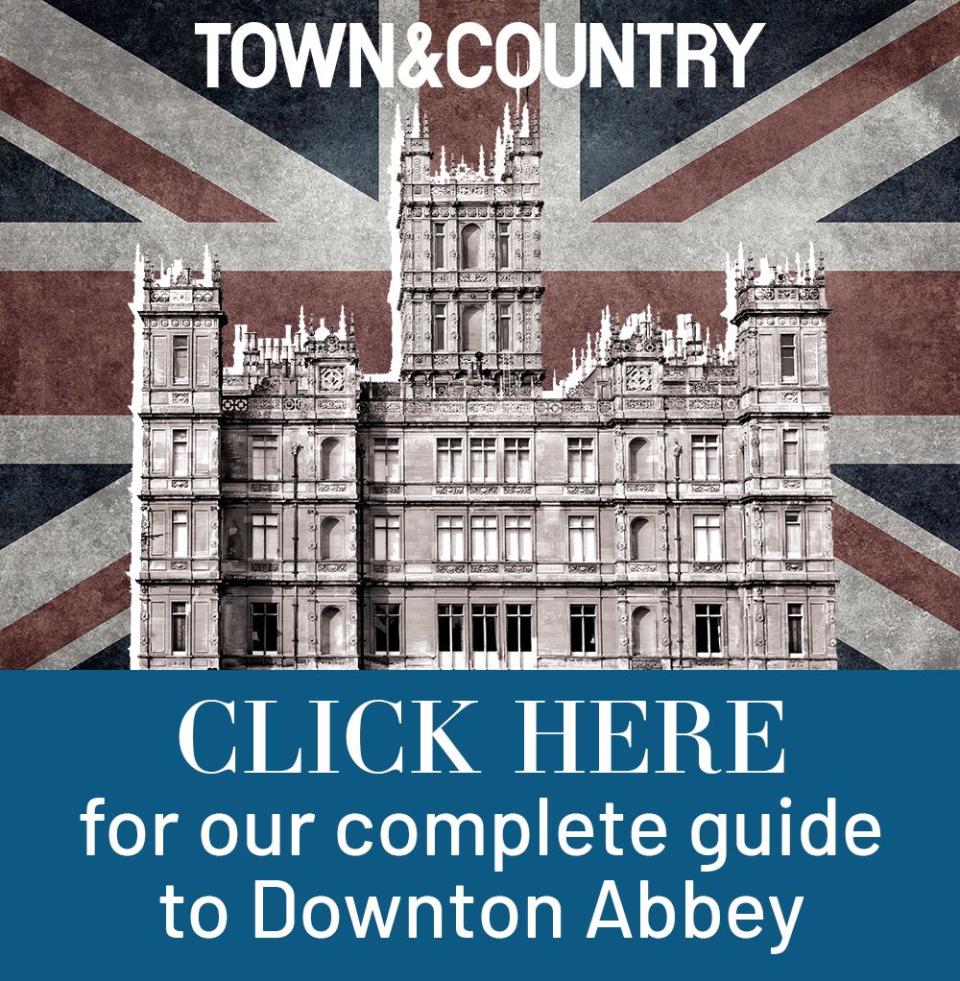
But then I've got to always remember people want it to be an occasion. If you tell them that, in fact, this occasion they've been building up to is nothing, you don't help them enjoy the moment, so you just give them the bare minimum that they need to deal with. So you tell them what to call the Prince. You tell them how to react.
In the trailer, we see there’s a big military parade in the film. What kind of attention to detail is paid to the costumes in a scene like that?
The great thing about the King's Troop, Royal Horse Artillery is that their uniforms today are remarkably similar to the uniforms of the 1920s, 1930s, so that was very easy.
We did have to make a few adjustments. We stitched on a bit of colored cloth to cover the symbol of the current Queen. With the commanding officer, a lovely chap called Harry who, in fact, is Princess Anne's godson, he had five medals, so I made sure that he had five medals from that period. I gave him three from the First World War, which we call Pip, Squeak, and Wilfred, and then I gave him two extra medals for Bravery, Distinguished Service Order and the Military Cross. He was very pleased with those.
So everything would have looked precisely as it did in the 1920s, and you asked me about precision. There is no leeway for anything else in a film like this. It has to be precise.
What was a challenge was that we wanted to work with and to respect a modern army. Every time you see those guns rumbling in and those horses, they are in every respect fully trained soldiers ready to fight. But many of the soldiers in the King's Troop, Royal Horse Artillery today are women, but in the 1920s they were not. So occasionally we had to ask soldiers to give up their saddle for another soldier because when we were doing close-ups, it was necessary for each of the very recognizable soldiers to be men. But I did ask all the soldiers present to grant understanding for that and you know, they're soldiers, they were instantaneously understanding. We were not trying to undermine the incredibly important role that women play in the armed forces today.
Tom Branson plays a large role in the film. What direction was actor Allen Leech given in terms of how an Irishman at that time would have interacted with the monarchy?
Well, I think what's lovely is that Tom doesn't know that Princess Mary is Princess Mary. Maybe today people find that difficult to believe because we all know who Princess Anne is, but that's probably because journalism and the effervescent and continuous presence of photographs just make it impossible not to know who anybody is.
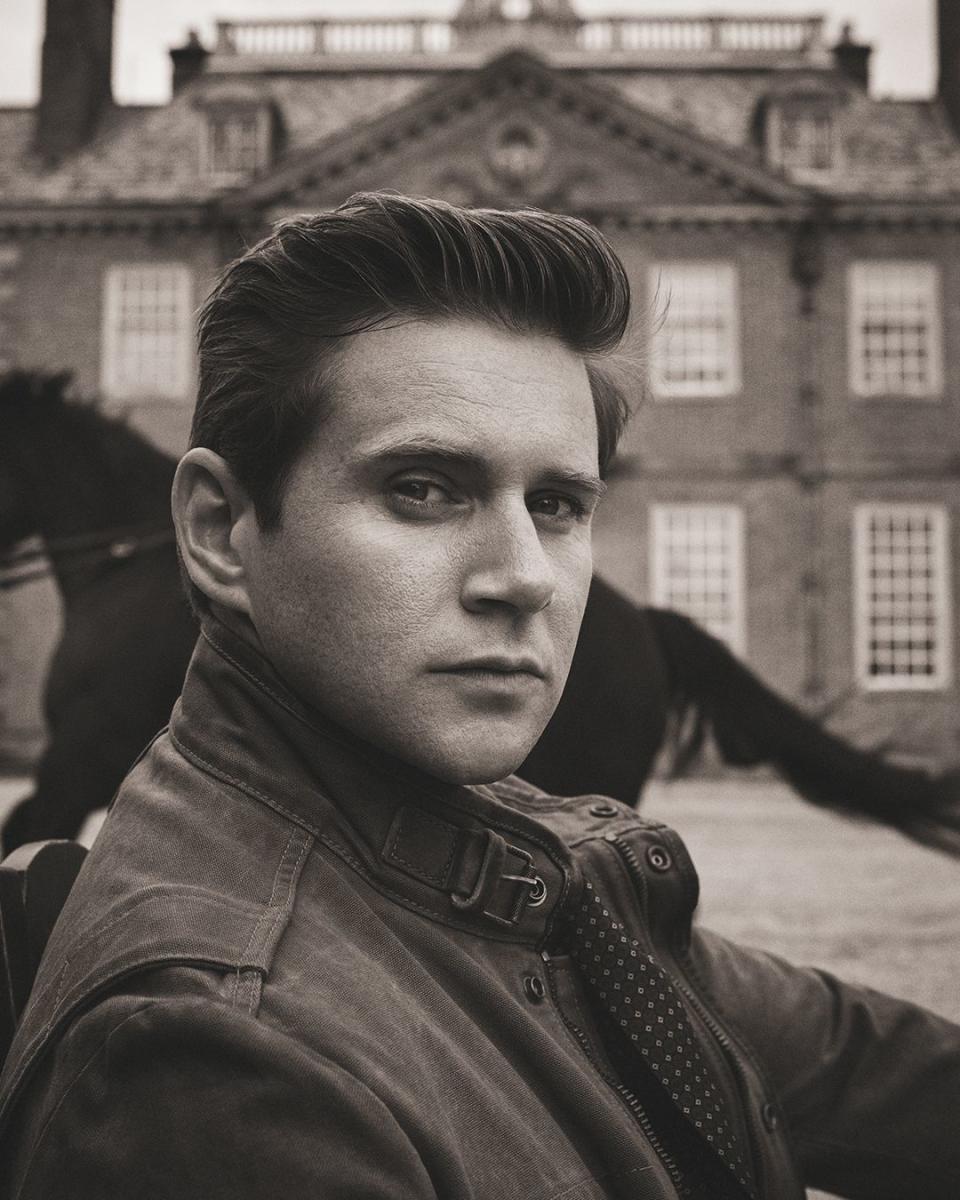
Although I did go onto a film set and had no idea who Zac Efron was although I was giving him advice on the film The Greatest Showman, but it's only because I'm not into that sort of genre of entertainment. But in a way what I just said about my experience with the lovely Zac, who I'm now great friends with, is that you don't necessarily know the people who occupy a part of society in which you are not particularly interested.
So it's not surprising that Tom doesn't know who Princess Mary is. In fact, I was constantly having to work to make sure that he never saw Princess Mary being curtsied to in the build-up part where the reveal occurs.
Because I think that's one of those subtle codes that the British have. If he had once seen people drop a curtsy or bow to Princess Mary, then how could he possibly have not known who she was in the garden? That required me to be very, very cautious.
You know, I was ruthless on set. I just said, "Well, you're going to have to reset it. You can't have this action happening with this other action happening in the background. You have to move it."
Speaking of curtsies, were curtsies in the 1920s different from the way people curtsy now? How did you work with the actresses on how to do one properly?
Well, I think the only way to teach anyone to do anything is to show them, don't let them try and repeat it until they've seen it, and then teach them stage by stage how to do it. That's what the army does and it's a pretty good system by my book. I'm a very good curtsy-er. Actually, I would absolutely love to curtsy more frequently than I get the chance.
Nowadays people who think they're curtsying are actually giving what's called a housemaid bob, a completely different thing. A slight bend of the knees is not a curtsy. A curtsy is when you drop one foot way back and you go right down so that your bottom is almost touching the back of your leg and you lower your head slightly in a demure fashion, which is utterly irresistible to the Prince. That is a curtsy and we call it a court curtsy. I'm getting too old to do it well, but very fit, young women who have trained to do it do it quite beautifully.
It sounds difficult.
I've just done it in front of the window here and I hope the whole of Edinburgh can see. You know, there are still members of the Queen's household who do it quite beautifully. Lady Susan Hussey is my absolute favorite curtsy-er. She curtsies better than anybody else, and she started working for Her Majesty the Queen in the 1960s and she still drops a beautiful curtsy.
You're part of a series and now a movie, a universe that has become so incredibly popular. What is it like to be part of a phenomenon? And in particular, why do you think it has become so popular in the United States?
Well, I'm profoundly proud of having supported my wonderful friend Julian. Julian has an imagination. He has a manner of seeing things that I find really exciting and exceptional. He has tremendous humor. He has a great grasp of pathos, but I know that I make his delivery stronger by bringing to the set the precision of a period of time in British life that most people have forgotten and yet it captures us all.
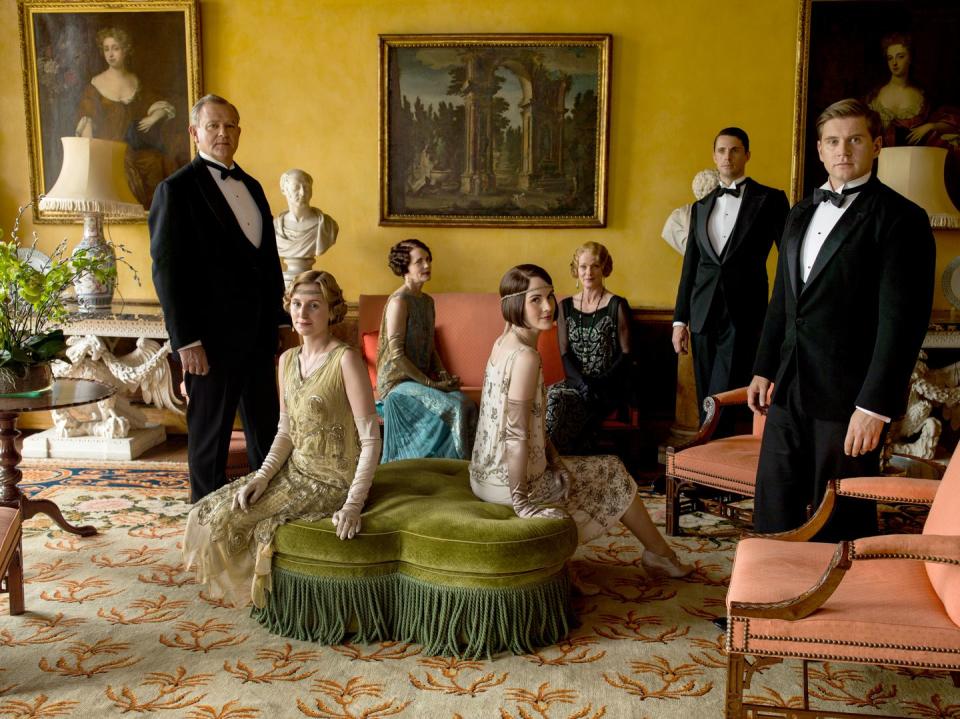
Why I think it has been successful in America, although Americans may not regard me as qualified to say this, is because of three things:
One, I think it's got a riveting narrative that involves a range of very interesting characters. Two, it demonstrates a society in which everyone knew their place and everyone had a part to play in the great turning mechanism of the British Empire. I'm not asking for that to come back, don't get me wrong, but we live in a very equal world now, and a lot of people have got lost in that equality, and they don't know they where they fit. And I think Downton Abbey can take you into a much safer, much more understandable place.
Thirdly, I think the attention to detail that I've been a part of, and getting history right, gives the viewer greater confidence. They feel they're being taken into a time legitimately and that seals the deal. Americans have got just as good an instinct, perhaps an even better one, for knowing when they're being given absolute karat gold stuff.
You Might Also Like
